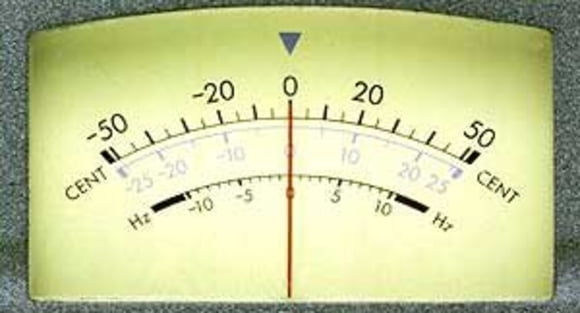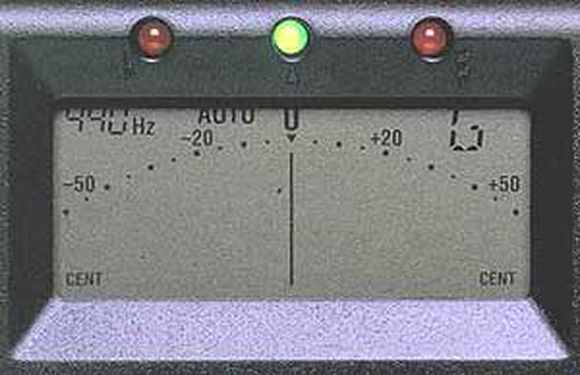5. Display Types
Electronic tuners use various display technologies:
Analogue Meter
Early tuners used a simple analogue needle display, and many models still do. The centre line indicates perfect tuning, whilst off-centre readings indicate that the note is flat (left of centre) or sharp (right of centre). The instrument or string is adjusted accordingly until a perfect centre reading is achieved. The error is usually displayed in cents (hundredths of a semitone).
LCD Meter
This is simply a digital emulation of an analogue meter. However, additional information such as the reference pitch and target note can easily be displayed on the same screen - 440Hz and G in this example. Many models feature a switchable backlight and green and red LEDs to indicate correct or incorrect tuning.
LED Display
This type of display uses a straight or curved line of bright LEDs and is therefore the best type for stage use. A central green LED indicates correct tuning, whilst red LEDs on either side indicate sharp/flat tuning in cents. Some models also have orange to indicate nearly in tune. As in the example above, additional LEDs and segment displays often show other information and settings.





